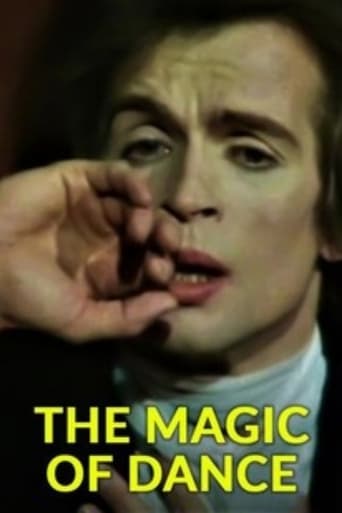With 30 Day Free Trial!
The Magic of Dance
1979
Dame Margot Fonteyn acts as tour guide to the British ballet.
Watch Trailer
The Magic of Dance Season 1 Full Episode Guide
Margot Fonteyn explores the dancer's life. The rigours of ballet class, the rehearsals and preparation, and finally the moment of judgment when it's out in the limelight and on with the performance. Some of Margot Fonteyn's greatest moments on stage are relived in Salut d'Amour, which Frederick Ashton created for a Gala Birthday Tribute. The series ends with a complete performance of Ashton's ballet Marguerite and Armand, which was inspired by Dumas's tragic love story La Dame aux Camelias. It is performed by the partnership for which it was created - Margot Fonteyn and Rudolf Nureyev.
The first real ballet school was founded by King Louis XIV of France in 1669. From Louis's great palace at Versailles, Margot Fonteyn tells the story of Louis's own love of dancing and how it led from the courtly dances of 17th-century France to the worldwide phenomenon of ballet that we know today. At Drottningholm in Sweden, she visits the Court Theatre and sees ballet performed in the original settings and under the original conditions.
Margot Fonteyn traces the story of the Romantic Ballet and its greatest exponents. In 1832, the most famous ballerina in the world was Marie Taglioni. One of the first ballerinas to dance on the tips of her toes, she epitomised the Romantic Age - ethereal and sylph-like. Her most famous role was La Sylphide. By mid-century, however, there were new styles, and it was left to the Russians to revive the romantic age in 1909, when they brought Les Sylphides to Paris.
In almost every age the world of dance has produced its own pioneers - leading dancers and choreographers who have experimented with new styles and new forms. Margot Fonteyn looks at the work of some of the greatest of the pioneers, from the Commedia dell'Arte in 17th-century Italy to Martha Graham in 20th century America. The programme includes a performance by Fonteyn and Baryshnikov of Fokine's famous ballet, Le Spectre de la Rose.
Dance has almost always moved freely across frontiers. Just as in the 19th century, Italian and French dancers went to Russia to make their names, so in the 20th century, Diaghilev reversed the flow by bringing the Ballets Russes to live and work in Western Europe. All part of the ebb and flow of dance. Margot Fonteyn visits Tchaikovsky's house near Moscow and talks to Marie Rambert about Diaghilev. The programme includes unique film of Pavlova, as well as Mikhal Baryshnikov dancing Petrushka
Margot Fonteyn discusses the role of the male in dance. Her story is illustrated by some of the world's greatest dancers performing some of the era's most enduring dances.
Free Trial Channels
Seasons


























